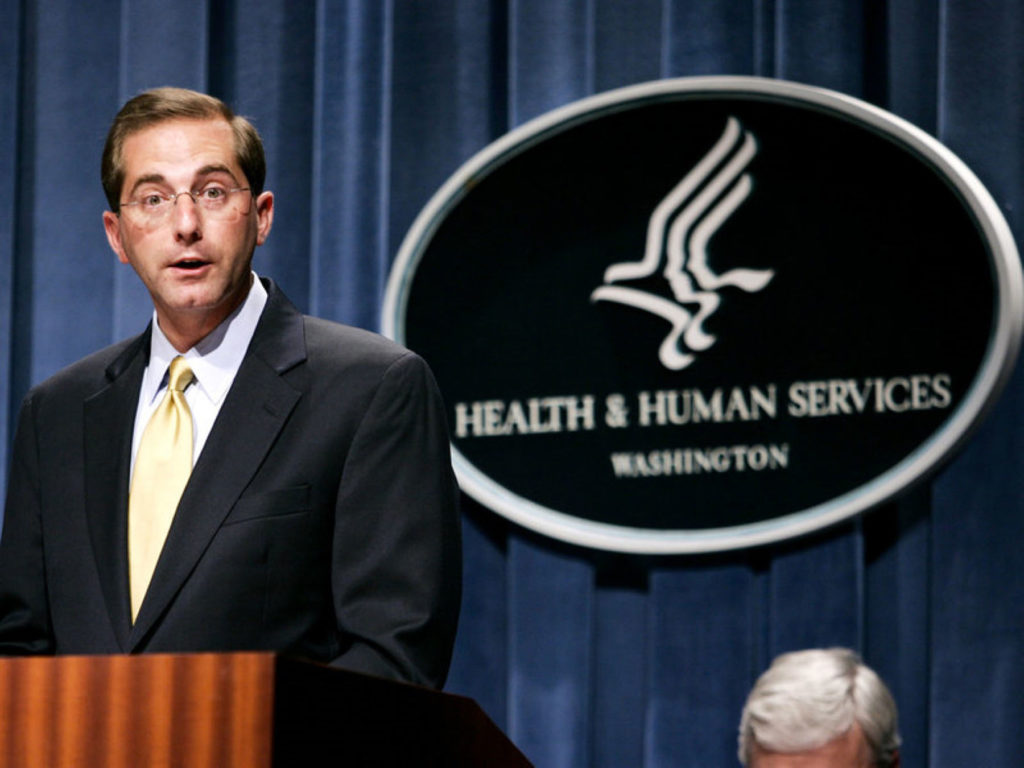Brand Beat: New Startup Will Fight Rising Drug Prices With “Equivilar” Therapies

The biotech startup EQRx has announced a plan to undercut typical drug prices by producing generals and biosimilars for a fraction of patent drug price costs. This startup’s future drugs, which they dub “equivalars,” will differ from current biologically similar drugs on the market simply because Chairman and CEO Alexis Borisy plans to sell them at about one-third to one-fifth of the price of current patented drugs. Borisy compares the EQRx approach to what JetBlue and Southwest did in the airline industry: Bring market-based competition and pricing elasticity into the pharma market. If all goes according to plan, the high-quality equivalars would help market prices settle below the current inflated price point. Borisy’s theory is a response to the fact that about 24% of Americans report trouble affording their prescription drugs, according to the Kaiser Family Foundation, and financial stress is especially acute for those with diseases like cancer.
EQRx will first focus on producing drugs in cancer, immuno-inflammatory disease, and “not-so-rare genetic diseases.” Backed by $200 million in Series A financing, the company hopes to churn out 50 targets in the next decade, mimicking only drugs on the market or soon to come to the market. The company will research how existing drugs work against biological targets to treat diseases and create unique drugs with their own patents that are equally as effective.
Once the drugs are on the market, it will be up to the consumer to choose the cheaper option in order for Borisy’s reshaping of the industry to work. “If we believe the market is going to reprice, the long-term vision for EQRx is ultimately bullish. Other players will merge, acquire each other, and take out some inefficiencies there,” Borisy said in a statement. “We’re working closely in strategic collaboration with the healthcare system—integrated delivery networks and payers or governmental systems that are very worried as they look out over the next decade of what’s happening with some of these expensive drugs. It’s not really about one drug here or there. It’s about having a significant number of drugs. It’s one of the reasons this company has to be built at scale.”
The EQRx team shares a vision that will take years to carry out, but given the drug price crisis Americans face and the machine learning technology that makes a solution so readily available, they believe this is simply the right thing to do.
Trend Setting: Diabetes Drug May Help Prevent Miscarriage
A recent study found that an existing diabetes drug, sitagliptin, may optimize the lining of the womb to reduce the risk of miscarriage in women who have already experienced pregnancy loss. With so few recurrent miscarriage treatments available, this would be the first drug that targets the lining of the womb to deliver an effective treatment for recurrent cases of miscarriage.
The NIHR Coventry and Warwickshire Clinical Research Facility found that women who experience recurrent (two or more) miscarriages often lack stem cells in their womb lining. The stem cells help renew the lining with nutrients and reduce inflammation during the early stages of pregnancy. After a clinical trial of 38 women aged 18 to 42 who experienced a large number of recurrent miscarriages (average of five), the researchers found a 68% average increase in stem cell count in those women who took the full course of sitagliptin. These women also presented a 50% decrease in the number of “stressed” cells present in the lining of the womb.
The study indicates that the current diabetes drug is effective in increasing stem cells in the womb lining, even in cases of recurrent miscarriage. Further clinical studies are necessary to determine if this can be considered an effective treatment for the condition and increase chances of a safe pregnancy for such patients.
Therapeutic Talk: Biggest Drop in Cancer Mortality Rates Yet
 Cancer mortality rates have been dropping by about 1.5% every year since 1991, but researchers have revealed the biggest drop in cancer deaths yet. Between 2016 and 2017, overall cancer death rates fell by 2.2%. Rebecca Siegel, the lead author of the new American Cancer Society report, tells the Associated Press: “It’s absolutely driven by lung cancer,” which accounts for about a quarter of all cancer deaths. Take lung cancer out of the mix, and the 2017 rate drop is 1.4%.”
Cancer mortality rates have been dropping by about 1.5% every year since 1991, but researchers have revealed the biggest drop in cancer deaths yet. Between 2016 and 2017, overall cancer death rates fell by 2.2%. Rebecca Siegel, the lead author of the new American Cancer Society report, tells the Associated Press: “It’s absolutely driven by lung cancer,” which accounts for about a quarter of all cancer deaths. Take lung cancer out of the mix, and the 2017 rate drop is 1.4%.”
While most lung cancer cases are tied to smoking, and declining smoking rates have led to steadily decreasing rates of lung cancer illnesses and deaths, the significant decline seen in 2016-2017 seems accelerated by therapeutic innovation. Experts attribute the effective battle against lung cancer to advances in all areas of treatment, including surgery, precision radiation, and effective diagnostic tests. Among these factors are new lung cancer drugs, specifically, new pharmaceuticals that deliver more targeted treatment with the help of genetic tests that can now identify specific cancer cell mutations.
These drugs are also keeping lung cancer patients alive for many years longer than would have been possible just a decade ago. One such drug is AstraZeneca’s Imfinzi, an intravenous drug that has been shown to prolong survival in a particularly aggressive type of lung cancer by close to three months. Imfinzi cost around $900 per vial in 2019. Keytruda, Merck’s popular small cell lung cancer treatment, came in at about $2,296 for one injection last year. The report cites smoking tobacco as the leading cause of lung cancer in the U.S., and also asserts that overall cancer mortality rates have continued to drop as they have every year since the 1990s.
Discoveries/Innovations: First CRISPR Enhanced Bacteriophage Clinical Trial Underway
Locus Pharmaceuticals announced the opening of a clinical trial for a CRISPR Cas3-enhanced bacteriophage product, called crPhage, that targets the Escherichia coli (E. coli) bacteria that cause urinary tract infections (UTIs). Locus used a CRISPR-Cas3 construct to target an E. coli genome. The CRISPR construct enhances the natural lytic activity of the bacteriophage, making the product significantly more effective at killing E. coli cells than corresponding natural bacteriophages, as shown both in laboratory tests.
“This trial represents a major step toward proving that CRISPR recombinant phage can reach into the human body and precisely remove a specific pathogen,” stated Paul Garofolo, Chief Executive Officer of Locus. “We could not be more pleased with the team and partners who helped us advance from bold vision to the clinic.” The company is now enrolling patients for the Phase 1b clinical trial, having received FDA clearance for the investigational drug, known as LBP-EC01.
DC Dispatch: Trump Admin Proposes Drug Imports from Canada

In the latest proposal to combat inflated U.S. drug prices, the U.S. administration loosens existing restrictions on importing prescription drugs in order to give Americans access to lower-cost Canadian drugs. State governments would have to work with wholesalers or farmers on import agreements, and the foreign drugs would have to receive FDA approval. Controlled substances and biologics, namely insulin or IVs, would not be permitted.
While pharma industry groups believe this would hurt the U.S. patient group by paving the way for imitation drugs, HHS Secretary Alex Azar said that there would be a controlled supply chain—far better than Americans accidentally buying what appears to be Canadian drugs online only to find that they originate elsewhere. Other groups feel this step isn’t nearly enough to cut outrageously rising prices, and that the government should take a larger role in setting prescription prices as do governments in other countries where drugs are kept at a steady, reasonable price—like Canada.
With the 2020 elections on the horizon, this quick solution is believed by some to be a way of appearing to make progress in the space.
FDA Update
Drug Approvals
The FDA approved the first ever Nasal Spray Seizure Rescue Medication. Neurelis’ Valtoco is an acute treatment for intermittent, stereotypic episodes of frequent seizure activity for those with epilepsy and who are over 6 years old. Previously, the drug was only available as a rectal medication. Valtoco provides an on-hand method for seizure rescue for the 170,000 individuals in the U.S. at risk for cluster or acute repetitive seizures.
Merck received FDA approval for a new Ebola vaccine, Ervebo, marking a crucial advancement in therapies needed in sub-Saharan Africa. According to the World Health Organization (WHO), the Ebola case count reached 3,391 in the Democratic Republic of the Congo with 2,234 deaths. To date, Merck has shipped more than 275,000 doses of the vaccine based on requests from WHO.
Micro Labs Limited and Mylan Pharmaceuticals Inc. both received FDA approval for the first generics of Eliquis (apixaban). Apixaban reduces the risk of stroke and systemic embolism in patients with nonvalvular atrial fibrillation and treats deep vein thrombosis (DVT) and pulmonary embolism (PE).
Medical Device Approvals
Foundation Medicine’s FoundationOne CDx(F1CDx) received FDA approval for marketing as a lab test designed to detect genetic mutations in 324 genes that now includes breast cancer patients with certain genetic mutations in the PIK3CA gene who may be eligible for treatment with Piqray.
Tusker Medical received approval for the Tula System, ear tubes that are inserted into the eardrum to treat repeated ear infections or fluid in the ear in young children and adults using local anesthesia in a physician’s office. The Tula Iontophoresis System uses a small electrical current to deliver Tymbion to the eardrum prior to tube insertion. A local anesthetic is delivered and the ear tubes are then inserted to prepare for procedures.









